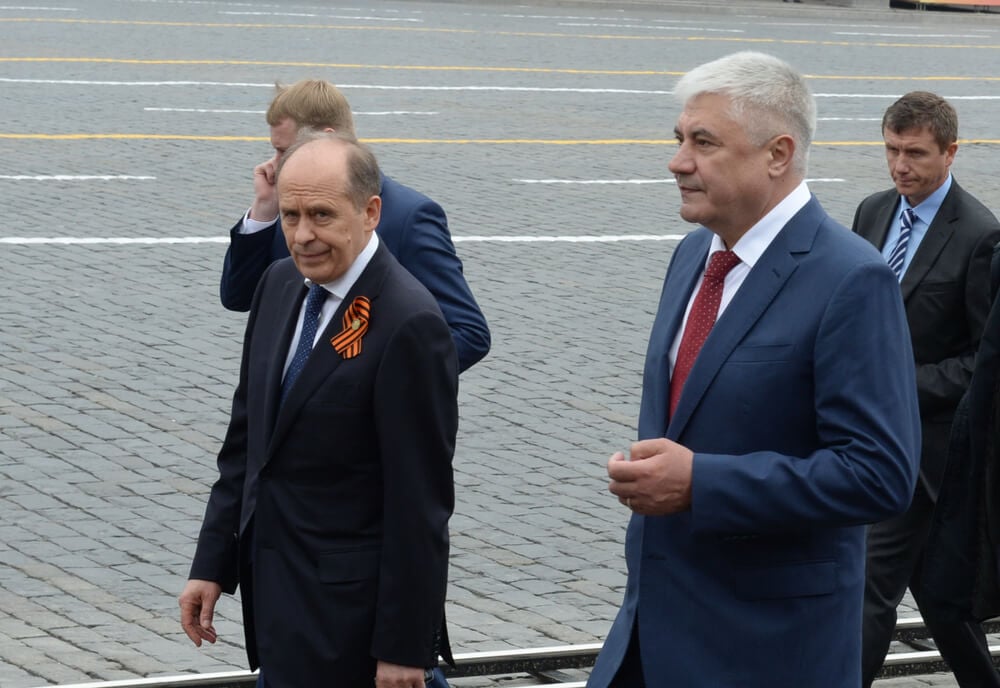The Russian people have yet to recover from 70 years of communism, and the FSB has remained multifaceted, exploring a variety of spectrums, including within the Russian opposition.
Ilya Yashin, the opposition representative, sparked a peculiar unrest in Russia. He was one of the Russian dissidents involved in a prisoner exchange between Russia and the West.
Yashin, during one of his latest public appearances, suggested that all Russians should bear the responsibility for Putinism and everything Russia now does globally, particularly in Ukraine, in the name of the Russian people.
However, the Russian public and various opposition circles fiercely rejected Ilya Yashin's logical and responsible conclusion.
Numerous opposition influencers and leaders, who are now either in Russia or abroad, began to reject and even ridicule Yashin's statement.
It was painful to see and read those publications and statements by the Russian opposition representatives who want to claim leadership in Russia "after the Putin regime is gone" but who, at the same time, refuse to accept that not just the Putin regime but the entire country has gone to the wrong side and thus must be held accountable.
The legacy of the USSR
The Russian people have been submitting to the Putin regime since the 1990s. After the collapse of the USSR, the Russian people were ill-prepared and lacked the knowledge to fully take responsibility for their own lives. In Putin, they’ve seen a saviour—even a master—who would take care of Russia and the Russian people.
The case of Ilya Yashin brought to light an unexpected revelation. Despite claiming leadership in Russia for the future, the Russian opposition refuses to accept responsibility for everything it does. Some of them believe that only a master bears responsibility.
There are Russian opposition representatives who are indeed naive and share the same infantile sentiments as the majority of people in Russia, but they approach things from a quite different perspective.
There is nothing wrong with being naive, except for the fact that it enabled the Putin regime to survive 2011–2013 mass protests
These people refuse to take responsibility for the current horrific Russia, but they fantasise about being responsible for a "bright Russia of the future."
At one point, the concept of "Bright Russia of the Future" was extremely popular in Russian opposition circles. The opposition attracted intellectuals, many of whom believed that Putin can be voted out and that one day the Russian people will elect a hypothetical opposition leader who will lead the Russian majority to prosperity and democracy.
There is nothing wrong with being naive, except for the fact that it enabled the Putin regime to survive 2011–2013 mass protests, increase domestic purges, and cause death not only among opposition circles but also around the world.
Unstopped in 2011-2013, the Putin regime has intensified the level of pain and suffering all over the world and especially in Ukraine.
Corruption is bad, but...
The other category of Russian opposition consists of individuals who occasionally criticise Vladimir Putin and the way the war has been unfolding. They are against corruption, but only because they want Russia to be strong in order to end the war in a desirable way for Russia.
These Russian opposition representatives reject post-war financial compensations, which people such as Ilya Yashin or Garry Kasparov have been legitimately advocating.
Some of the Russian opposition representatives reject the idea that the Russian people are responsible for the war, as they reject the idea of Russia losing it
These are the Russian opposition representatives who reject the Russians' responsibility and dominantly share nationalist and/or right-wing views.
They reject the idea that the Russian people are responsible for the war, as they reject the idea of Russia losing it.
These people are now discussing the need to end the war and the urgency for all countries to reconcile their differences.
Apart from their sporadic criticism of Putin and Russian corruption, these Russian opposition representatives' views on the war or the military and financial support the West has been providing to Ukraine are similar to those of Viktor Orban and Germany's far-right AfD political party.
The FSB and the shaping of the Western perception of Russia
The FSB allows these Russian opposition representatives to criticise Putin, as long as they say things that are good and beneficial to Russia in general. They are not allowed to say that initiating the war was a mistake. Instead, they are now proposing that the war should end as soon as possible, a proposal that aligns with the Kremlin's desires.
Russian intelligence has the ability to control or cultivate a significant number of individuals in Russia, as well as those Russians living abroad who present themselves as Russian opponents.
 The FSB allows Russian opposition representatives to criticise Putin, as long as they say things that are good and beneficial to Russia in general - The FSB chief Alexander Bortnikov with Interior minister Vladimir Kolokoltsev
The FSB allows Russian opposition representatives to criticise Putin, as long as they say things that are good and beneficial to Russia in general - The FSB chief Alexander Bortnikov with Interior minister Vladimir Kolokoltsev
This is why they deny Russia's responsibility and financial compensation. The FSB is using them to shape the West's perception of Russian opposition for some future purposes.
The same is true of the fight against corruption by the Russian opposition. They argue that corruption is indeed a serious issue. However, if Putin's generals are responsible for this corruption, it may not be as severe when viewed from a different angle.
Putin's generals and public officials could have alternatively used all those billions of dollars to manufacture more tanks, missiles, and fighter jets for use in the war.
Therefore, whenever we encounter individuals who identify as Russian opposition, regardless of whether they criticise Vladimir Putin, we should consider their perspective on Russia's current position in the global landscape, as well as their perspective on Russia's role in the post-war world.